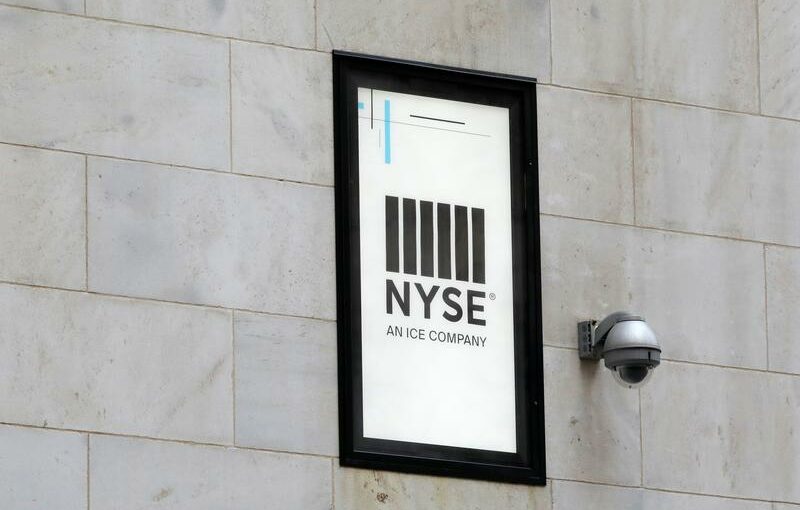NEW YORK (Reuters) – The Dow and S&P 500 fell on Tuesday, with financials and other groups closely tied to economic growth leading declines, while the Nasdaq edged higher to another closing record.
The S&P 500 banks index fell 2.5% as U.S. Treasuries rallied, with the 10-year yield hitting its lowest since Feb. 24.Data showed U.S. services industry activity grew at a moderate pace in June, likely restrained by labor and raw material shortages.
The Dow led the day’s declines. Financials sank 1.6%, the biggest weight on the S&P 500 followed by energy shares.
Adding to investor caution, a regulatory crackdown by Beijing drove a selloff in shares of several U.S.-listed Chinese firms, including Didi Global Inc.
Alan Lancz, president of Alan B. Lancz & Associates Inc., an investment advisory firm based in Toledo, Ohio, said with Treasury yields down, “investors may be worried the economy might not be a good as the stock market was showing.”
Also, investors may be taking profits after a strong end of the quarter and string of recent records. “It was such a good quarter end,” he said. Now, “cyclicals are really getting hit.”
The S&P 500 growth index ended up 0.5% after hitting a record high on Tuesday, while the S&P 500 value index fell 1%.
The Dow Jones Industrial Average fell 208.98 points, or 0.6%, to 34,577.37, the S&P 500 lost 8.8 points, or 0.20%, to 4,343.54 and the Nasdaq Composite added 24.32 points, or 0.17%, to 14,663.64.
Last week, all three indexes posted their fifth consecutive quarterly gains. They scaled new highs on Friday.
On Tuesday, the Cboe Volatility Index, an options market gauge of expectations for near-term volatility, rose 1.37 points to close at 16.44, its highest close in two weeks, highlighting investors’ jangled nerves.
Didi Global shares dropped 19.6% after Chinese regulators ordered over the weekend the company’s app be taken down days after its $4.4 billion listing on the New York Stock Exchange.
Other U.S.-listed Chinese e-commerce firms also fell, including Alibaba Group, down 2.8%, and Baidu, down 5%.
(Graphic: )
Declining issues outnumbered advancing ones on the NYSE by a 1.86-to-1 ratio; on Nasdaq, a 2.18-to-1 ratio favored decliners.
The S&P 500 posted 49 new 52-week highs and no new lows; the Nasdaq Composite recorded 69 new highs and 75 new lows.
Volume on U.S. exchanges was 10.12 billion shares, compared with the 10.8 billion average for the full session over the last 20 trading days.
Source: Read Full Article
